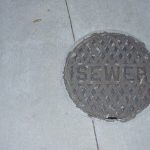As your local certified plumbing experts, we hear a lot of common questions from our customers about drain issues, pipe problems, and other plumbing issues. This is understandable; many homeowners don’t have the skills or time to develop the skills to deal with many plumbing issues themselves. Acquiring DIY plumbing skills can be tricky; this is a specialized field, and it’s easy to misdiagnose a problem or fix it incorrectly. Let’s take a look at three of the most common questions we receive and answer them here.
- How Can I Find Water Leaks?
Some water leaks are more obvious than others. If you see a patch of water under a pipe and the pipe is dripping, you have found a water leak. Sadly, most water leaks are much harder to locate, many plumbing pipes are hidden behind walls, and unless there are damp patches on the walls or ceilings, they could continue to leak for a long time. So, if you cannot rely on your sense to find any water leaks, how can you find them?
The only reliable way to check for a water leak is to examine your water meter and take some readings. First, check the meter, record the reading, and then go into your home and turn off every single water using appliance for at least six hours. Then return to the meter and take a second reading to see if any water has been consumed by your home in the interim period. If the second reading is higher than the first, you have found a water leak that is hiding somewhere in your home.
If you think you do have a water leak and you cannot find the exact location, it’s time to call a local certified plumber for professional help. They have the skills, experience, and equipment to locate the water leak and fix it for you quickly. This will minimize the water damage caused and save you a lot of time and effort.
- How Much Damage Can Water Leaks Cause?
The worst thing about water leaks is that they can persist for a long time without being detected, and this can cause a great deal of damage. Even a single smaller water leak represents a significant threat if it’s allowed to leak over a prolonged period of time. If that wasn’t bad enough, water leaks don’t tend to remain small indefinitely, and they will grow in size gradually to release even more water. Eventually, the water leak may be obvious, but by this stage, there could be damage that’s very hard to miss.
When water damage is persistent, it can further degrade the integrity of your plumbing pipes and fixtures. Corrosion will become a major problem, the water leak will expand, and a break in the pipe is a virtual certainty. Water can cause extensive damage to the infrastructure of your home, the walls, ceilings, and even the foundations can be affected. Needless to say, this is expensive to fix, and the repairs would be necessary to make the home safe to live in again.
The other aspect of water leaks is the volume of water wasted, and this will drive up your water bills. Even a tiny drip can waste an impressive volume of water over a year, and this will be reflected in higher than necessary bills.
- Why is My Hot Water Not Hot Enough?
This is a more complicated question to answer because there are three possible causes to explain. Each of these problems can only be confirmed and fixed by a local certified plumber using the correct tools. Let’s take a closer look at the three possible causes of water that cannot get hot enough or water that won’t stay hot for very long.
- A Sediment Buildup
The water that comes into your home will contain a small quantity of sediment. This is a mixture of sand, dust, grit, and other materials that have not been fully dissolved by the water. The majority of sediment is filtered out of your water supply, but a tiny amount inevitably gets through unless you have a dedicated pre-filter to remove it from your water. The sediment that gets through will settle at the bottom of your water heater tank (if you have one), and this will gradually build up to a significant quantity over time. The sediment will accumulate near the heating unit, and this debris will affect the efficiency of your water heater.
The best approach to deal with this problem is to get the water heater tank drained annually. This will remove the sediment buildup, and the tank can be flushed out to get it working efficiently. This will save money on your energy bills because the water can be heated quickly and the delivery of hot water will be faster. This can be included as part of a regular plumbing maintenance plan that will include other parts of your home plumbing system.
- A Broken Dip Tube
The water heater is filled with cold water at the bottom of the tank, this is then heated, and the hot water comes out at the top of the unit. Where the cold water enters the tank, there is a component called a “dip tube” that prevents the cold water from pooling away from the heating unit. If the dip tube breaks, the water cannot be heated efficiently, and the water may not be hot enough or retain its heat.
The only way to fix this problem is to contact a certified plumber and tell them about the problem. They can remove the broken dip tube for you and replace it with a new part. This will ensure that the cold water is heated evenly and improve the water heater performance.
- An Older Water Heater
Like any appliance, a water heater has a finite lifespan. This equipment works hard every day to supply hot water, and this takes a toll over time. In many cases, mechanical components, such as heating units, thermostats, and thermal switches, can start to fail on a regular basis. This will affect the water heating performance, and the water heater may stop working altogether.
A local certified plumber will be able to fix these water heater problems for you. But, it’s a great idea to ask about the general health of the water heater, and in many cases, it’s cheaper to replace the unit with a new water heater. When you consider how much these repairs are costing a more modern energy efficient water heater starts to look like a better alternative.
If you have any other plumbing problems, contact your
local professional plumber for expert help and advice today.
By Giovanni Longo President Flood Brothers Plumbing
Giovanni Longo is a 3rd generation master plumber who has been practicing his craft and trade in the greater Los Angeles area for well over a decade and a half. A plumbing and hydraulics-engineering innovator, Giovanni’s particular world-class expertise focuses on dealing with challenging sewer system designs as well as resolving complex commercial and residential draining issues. As a certified Flood Mitigation expert, he is also well versed in a wide variety of water damage and remediation solution.





